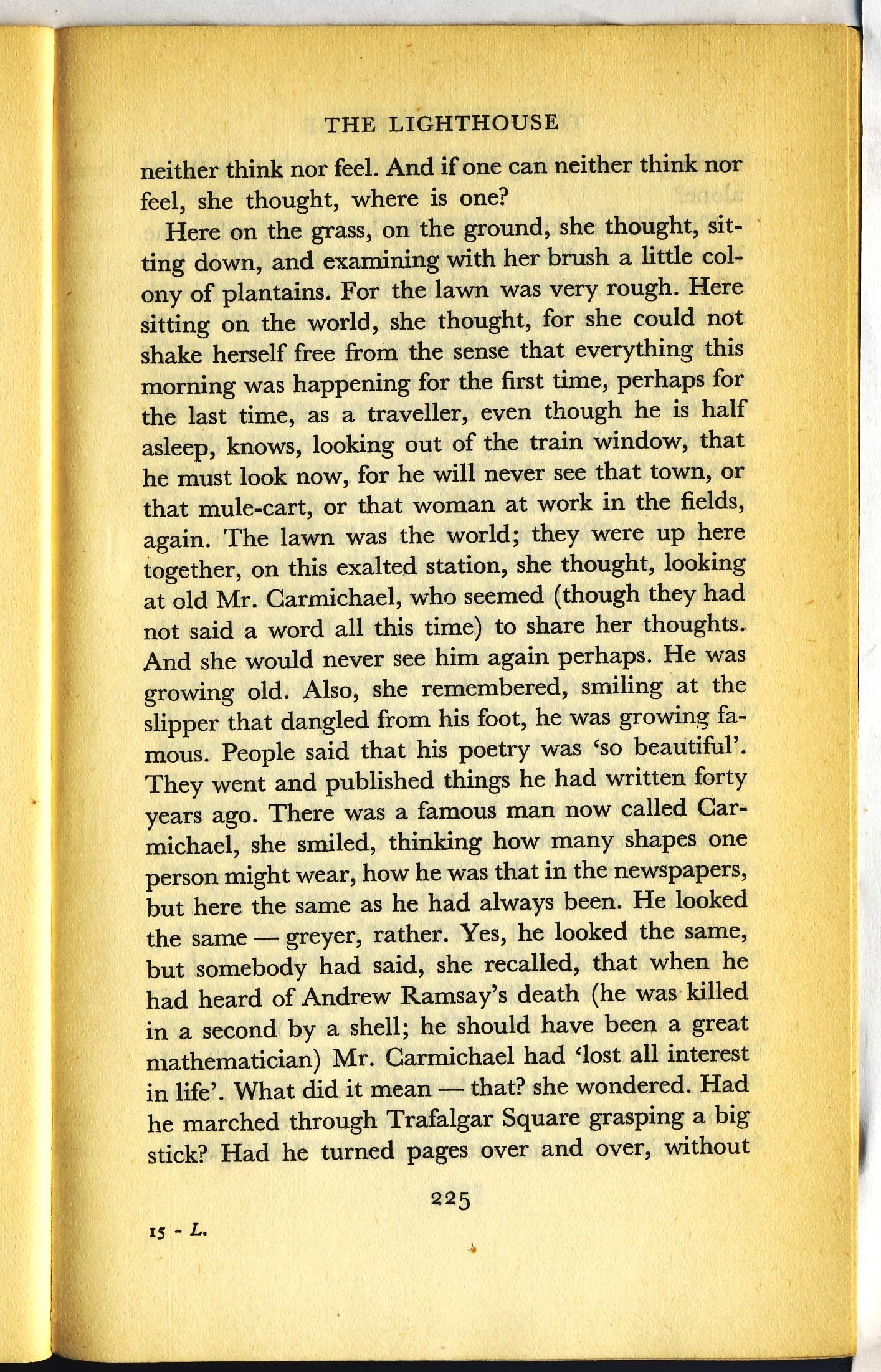
THE LIGHTHOUSEneither think nor feel. And if one can neither think norfeel, she thought, where is one?Here on the grass, on the ground, she thought, sit-ting down, and examining with her brush a little col-ony of plantains. For the lawn was very rough. Heresitting on the world, she thought, for she could notshake herself free from the sense that everything thismorning was happening for the first time, perhaps forthe last time, as a traveller, even though he is halfasleep, knows, looking out of the train window, thathe must look now, for he will never see that town, orthat mule-cart, or that woman at work in the fields,again. The lawn was the world; they were up heretogether, on this exalted station, she thought, lookingat old Mr. Carmichael, who seemed (though they hadnot said a word all this time) to share her thoughts.And she would never see him again perhaps. He wasgrowing old. Also, she remembered, smiling at theslipper that dangled from his foot, he was growing fa-mous. People said that his poetry was ŌĆśso beautifulŌĆÖ.They went and published things he had written fortyyears ago. There was a famous man now called Car-michael, she smiled, thinking how many shapes oneperson might wear, how he was that in the newspapers,but here the same as he had always been. He lookedthe same ŌĆö greyer, rather. Yes, he looked the same,but somebody had said, she recalled, that when hehad heard of Andrew RamsayŌĆÖs death (he was killedin a second by a shell; he should have been a greatmathematician) Mr. Carmichael had ŌĆślost all interestin lifeŌĆÖ. What did it mean ŌĆö that? she wondered. Hadhe marched through Trafalgar Square grasping a bigstick? Had he turned pages over and over, without22515 - L.









